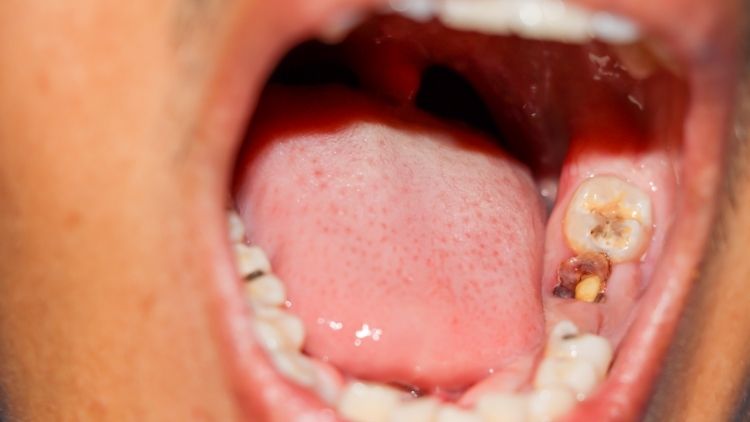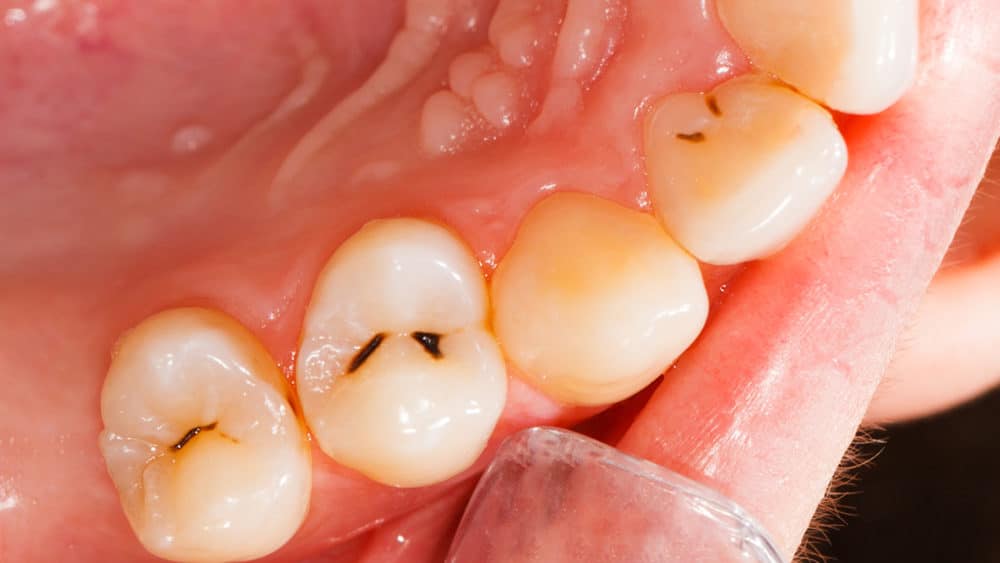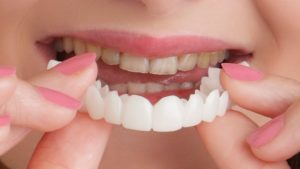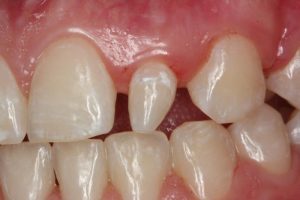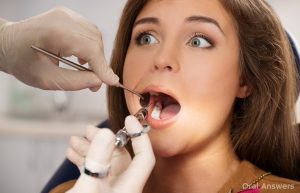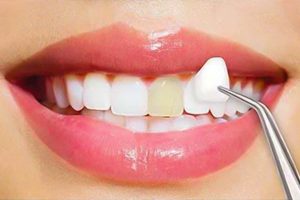I had a root canal done. My dentist put in a temporary filling until I could do the dental crown appointment. I’m still a few days away from that. When I went out for a meal today, I felt something grainy in my food. I think my teeth are crumbling. What to do when your tooth crumbling away? I don’t want to lose the whole thing and not be able to get the crown.
Emily S.
Dear Emily,
My suspicion is it’s not the problem of a crumbling tooth, but instead, the temporary filling dislodged. Take a peek at the tooth. If there’s a hole in the center of the tooth, that means you’ve lost the filling. If the shape of the tooth is changing, then the tooth is crumbling.
If it’s just the filling, don’t worry. Filling crumbling can be easily treated. They’re designed to come out easily so the dentist can do the needed work in time. As your appointment is only a few days away, you can just get some temporary filling material to hold you over until your appointment. It’s designed for people in just your situation. It wouldn’t last for more than a few days, but as you’re going in for your dental crown at that point, no problem. You can find them at most drug stores.
If it’s the tooth, that’s an entirely different situation. You’ll need to be seen right away. As you said, you don’t want to lose so much tooth structure that you’ll have to get an extraction and replacement tooth. Your dentist should have an after-hours protocol. Give them a buzz and there should be instructions on their voicemail.
If they don’t have an after-hours call number, then just see an emergency dentist. They’ll make sure your tooth is protected so you can still get your crown.
Understanding the Feeling of a Crumbling Tooth:
Many people who experience this feeling may wonder “why are my teeth crumbling after so much care?” Well, there could be different reasons for that. Let’s analyze one by one:
- Tooth Decay:
One of the most common reasons for a tooth feeling like it’s crumbling is advanced tooth decay. When decay reaches the inner layers of the tooth, it can weaken the structure and give a crumbling sensation.
- Enamel Erosion:
The erosion of tooth enamel, often caused by acidic foods, beverages, or conditions like acid reflux, can contribute to a feeling of the tooth’s surface breaking down.
- Fractures or Cracks:
Physical trauma, teeth grinding (bruxism), or biting on hard objects can lead to fractures or cracks in a tooth, giving it a fragile and crumbling sensation.
- Gum Recession:
Gum recession exposes the sensitive roots of teeth, making them more prone to damage and decay. This can contribute to the feeling of a tooth crumbling, especially near the gumline.
Immediate Steps for Relief:
- Gentle Oral Hygiene:
Practice gentle oral hygiene with a soft-bristled toothbrush. Avoid aggressive brushing, as it can exacerbate the sensation of a crumbling tooth.
- Avoiding Hard Foods:
Temporarily avoid hard or crunchy foods that could further stress the compromised tooth. Opt for a soft diet to minimize discomfort.
- Over-the-Counter Pain Relief:
Over-the-counter pain relievers can help manage any discomfort associated with the crumbling sensation. Follow the recommended dosage and guidelines.
- Topical Desensitizing Agents:
Consider using topical desensitizing toothpaste or gels to alleviate sensitivity. These products can provide temporary relief while addressing discomfort.
Importance of Seeking Professional Dental Care:
- Comprehensive Examination:
Schedule an appointment with your dentist for a comprehensive examination. A thorough assessment will help identify the underlying cause of the crumbling sensation.
- Dental X-rays:
Dental X-rays may be recommended to evaluate the extent of decay, fractures, or any other issues affecting the tooth’s structure.
- Treatment Options:
Based on the diagnosis, your dentist will discuss appropriate treatment options. This may include dental fillings, crowns, or other restorative procedures to address the specific issue.
- Preventive Care:
Implement preventive measures, such as improved oral hygiene practices and regular dental check-ups, to prevent further deterioration and protect your overall oral health.
Conclusion: Taking Action for a Healthy Smile
The sensation of a crumbling tooth is a signal that professional dental attention is essential. Prompt action can help identify and address the underlying issues, preventing further damage and ensuring the longevity of your oral health. Remember that seeking timely dental care not only addresses immediate concerns but also contributes to a healthier, more resilient smile in the long run
